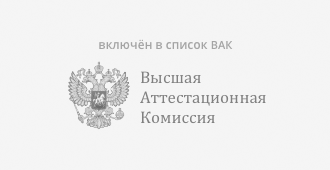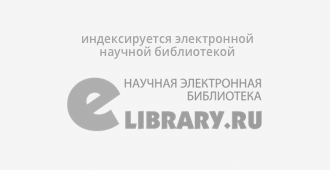Code of Ethics
Pursuant to Decree of the President of the Russian Federation No. 35 dated 25.01.2023 "On Amendments to the Fundamentals of State Cultural Policy Approved by Decree of the President of the Russian Federation No. 808 dated December 24, 2014" in part:
P. 4 A number of unfriendly states, international organizations and transnational corporations, foreign non-governmental organizations, as well as various extremist and terrorist organizations are engaged in activities aimed at undermining the cultural sovereignty of the Russian Federation, destroying traditional Russian spiritual and moral values, including contributing to the aggravation of conflicts in the global information space.
P. 5 The state cultural policy covers such spheres of state and public life as all types of cultural activities, social and humanitarian sciences, education, interethnic relations, support of Russian culture abroad, international cultural and humanitarian cooperation, as well as education and self-education of citizens, education, development of children's and youth movement, formation of the information space of the country.
The need to overcome interdepartmental, inter-level and interregional contradictions on issues of cultural development requires raising the status of state cultural policy to the national level.
The Ethical Code of the magazine "Discussion" since 25.01.2023 is not based on international recommendations (standards, norms, rules), but solely on the provisions of national legislation, in accordance with the Decree of the President of the Russian Federation dated April 25, 2022 N 231 "On the announcement of the Decade of Science and Technology in the Russian Federation", regulations, recommendations, orders and other legislative and regulatory requirements of the HIGHER ATTESTATION COMMISSION (HAC) UNDER THE MINISTRY OF SCIENCE AND HIGHER EDUCATION OF THE RUSSIAN FEDERATION.
The journal "Discussion" preserves the international structure of scientific research IMRAD, classification codes JEL in order to unify the form of scientific research and preserve the accessibility of familiarization of the scientific community from Russia-friendly countries.
No requirements of third parties (committees, associations, communities and other organizational forms) are a priority and cannot determine the editorial policy of the journal if they do not fully comply with the requirements of national legislation and the requirements of the HIGHER ATTESTATION COMMISSION (HAC) UNDER THE MINISTRY OF SCIENCE AND HIGHER EDUCATION OF THE RUSSIAN FEDERATION.
The editorial board of the journal is responsible for making a decision on the publication of the articles received by the editorial board.
The decision to publish is based on the reliability, scientific significance and relevance of the work in question.
The policy of the editorial board of the journal "Discussion" is based on modern legal requirements regarding copyright, legality set forth in Russian legislation, and ethical principles.
Compliance with ethical norms and rules is mandatory for all participants in the process of publishing scientific materials: authors, reviewers, members of the editorial board, editors and employees of the publishing house.
Editorial ethics of the journal
1. The editor-in-chief carries out the general management of the publication and the concept of the journal, is responsible (on the basis of the Founder's Charter) for making a decision on the publication of articles, taking into account the novelty, quality of the materials presented, their compliance with the profile of the publication and scientific specialty.
2. The Editor-in-chief regulates the procedure for submitting author's manuscripts to the editorial office for subsequent review.
3. The decision on publication is made based on the results of scientific review and taking into account the opinion of the members of the editorial board. When making a decision on publication, the editorial board and the editor-in-chief are guided by the scientific significance of the work under consideration, the quality of the presentation of the material, the correspondence of the article to the scientific specialty, the format and profile of the publication.
4. Editorial ethics provides for a fair and objective review process, independent of commercial interests and market needs.
5. When making a decision on publication, discrimination of the author's rights on the grounds of gender, race, sexual orientation, ethnic origin, religion, citizenship or political views is not allowed.
6. The editor has the exclusive right to accept the manuscript for publication or reject it. The editor reserves the right not to accept works designed with deviations from the rules adopted in the journal and violating the Requirements imposed on the authors of articles (see the Authors' Guide).
7. The work may be rejected by the editor at the stage preceding the review, if there are good reasons for this:
- the subject of the article does not correspond to the branches adopted by the scientific publication;
- the article was previously published in another publication;
- the article contains obvious signs of poor quality;
- the presented materials revealed a fundamental contradiction to the ethical principles that the Journal adheres to.
All incoming manuscripts that were not rejected for the above reasons at the first stage of consideration, the editor submits for review (See the Review Policy).
8. The editor accepts the article for publication in accordance with the Requirements of the journal. Editors must ensure that the materials they publish comply with international standards of scientific and publication ethics.
9. Editors must guarantee the high quality of the materials published in the journal and their content integrity, as well as publish corrections, explanations, apologies in cases where such a need arises.
10. If there is a conflict of interests between the editor and the author of the article, the article should be transferred to another editor.
11. If plagiarism is detected, the editorial board is guided by the rules for revoking the manuscript.
Ethical aspects in terms of double (redundant) and secondary publications
1. The publication of the original article is a top priority for the journal. Multiple (double) and secondary publications in the journal "Discussion" are not allowed.
2. When submitting a manuscript to the editorial office, authors should notify the editor-in-chief of any earlier publications of the submitted text (abstract of the dissertation, conference abstracts, presentations of an earlier published article, book chapters). Copies of such materials should be attached to the submitted article, which will help the editorial board decide whether the submitted article can be attributed to multiple (double) publication.
3. The publisher reserves the right to check for the publication of other authors' articles in international information databases. If it is found that the authors are trying to submit a secondary or duplicate publication without such notification, the editorial board has the right to refuse to review the manuscript. If, after the publication of an article in the journal, it is found that a similar article has been published in other publications, and the authors have not informed the editorial board about it, a message will be published in the next issue stating that this publication is multiple, with or without explanation or confirmation of the authors.
4. Repeated publications are carried out in strict accordance with international copyright laws, ethical standards and at the discretion of the editorial board.








